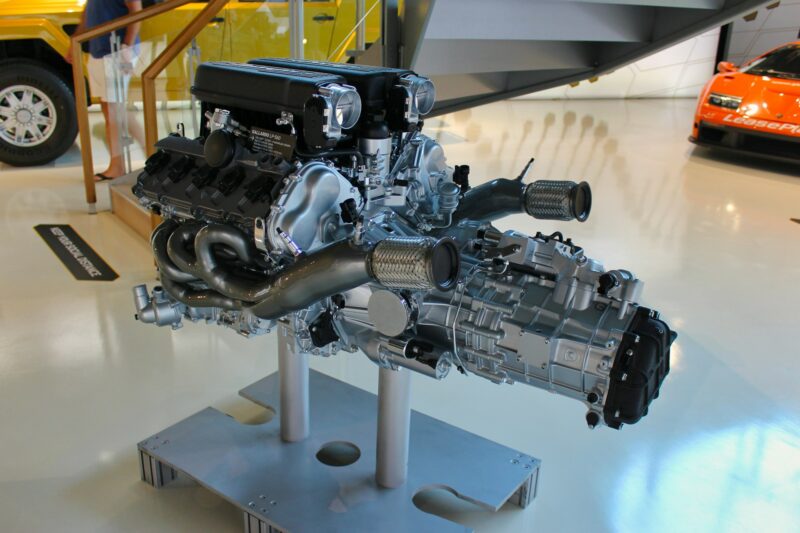Selecting the right engine for your equipment can be a daunting task. Whether you’re shopping for a generator, lawn mower, or other machinery, the engine you choose will directly affect performance, reliability, and efficiency. With so many options on the market, it’s essential to understand what fits your needs best.
This guide will help you break down the factors to consider so you can confidently choose the best small engine for your equipment. From engine type to maintenance tips, we’ll walk you through every step.
Understanding Engine Types
Single-Cylinder vs. Multi-Cylinder Engines
The first decision when selecting a small engine is to choose between single-cylinder and multi-cylinder engines.
- Single-Cylinder Engines: These are lightweight, compact, and suitable for equipment like pressure washers and lawnmowers. They’re cost-effective and easy to maintain.
- Multi-Cylinder Engines: This option is ideal for equipment requiring more power, such as tractors and large generators. They ensure smoother performance and better fuel efficiency but often come at a higher price point.
Two-Stroke vs. Four-Stroke Engines
Understanding how two-stroke and four-stroke engines work will help you evaluate what’s right for your equipment.
- Two-Stroke Engines operate on a simpler mechanism, making them lighter and easier to start. Ideal for smaller tools like chainsaws and leaf blowers.
- Four-Stroke Engines offer better fuel efficiency and produce significantly less noise, making them the go-to choice for larger equipment.
Assessing Power Needs
How to Determine the Right Horsepower
Horsepower (HP) is a crucial metric in assessing engine performance. For small devices, like edgers or tillers, a lower HP works well. Larger tools such as riding mowers or snowblowers, however, need engines with higher horsepower ratings.
Application-Specific Power Requirements
Before making your choice, think about where and how you’ll be using the equipment. For demanding tasks such as clearing thick grass or cutting large amounts of wood, ensure the small engine you choose has enough torque to handle such workloads efficiently.
Considering Fuel Types
Gasoline-Powered Engines
Gasoline engines are the most common and provide the highest energy density, enabling them to deliver more power. The downside, however, is frequent maintenance and higher emissions.
Diesel Engines
Diesel-powered small engines are known for their durability and efficiency. They also tend to last longer. However, they are better suited for heavy-duty applications due to their robust structure and relatively higher costs.
Electric Engines
For minimal maintenance and eco-friendly operation, electric small engines are an excellent alternative. While they’re not as powerful as their gasoline or diesel counterparts, they’re perfect for light-duty tasks around the home.
Planning for Maintenance and Repairs
The Importance of Maintenance
A well-maintained small engine not only lasts longer but also performs better throughout its lifespan. Keep up with routine check-ups, oil changes, and air filter replacements to avoid disruptions.
If you encounter any issues, you can rely on specialized services for repairs and troubleshooting. These adjustments ensure your small engine is back to optimal performance in no time.
Make Troubleshooting Simple
Modern small engines come equipped with features like diagnostic systems to make troubleshooting easier. Choose an engine with advanced safety and status indicators to help address problems quickly.
Evaluating Longevity and Reliability
Trusted Brands in the Market
Some small engines are simply more reliable than others, thanks to their proven reputation in the market. Brands like Honda, Briggs & Stratton, and Kohler dominate this space with their high-performing engine options.
Warranty and Support
An engine’s warranty speaks volumes about its durability. Look for warranties that cover at least two years for added peace of mind. Be sure to select a brand with accessible customer support for convenient follow-ups.
Staying Budget-Conscious
Upfront Costs vs. Long-Term Savings
Choosing an inexpensive small engine might save you money upfront but could cost more in frequent repairs. Consider your long-term ROI by selecting a reliable option that requires less maintenance.
Exclusive Offers and Where to Buy
Many brands offer exclusive deals through resellers or during seasonal sales. To learn more about these opportunities, click here to review purchasing and pricing specifics.
Why Choose the Right Engine?
The right small engine goes beyond powering your equipment—it ensures safety, efficiency, and a longer life for your machinery. Whether you opt for gas, diesel, or electric, taking the time to assess your needs will pay off in reduced downtime and better performance.


